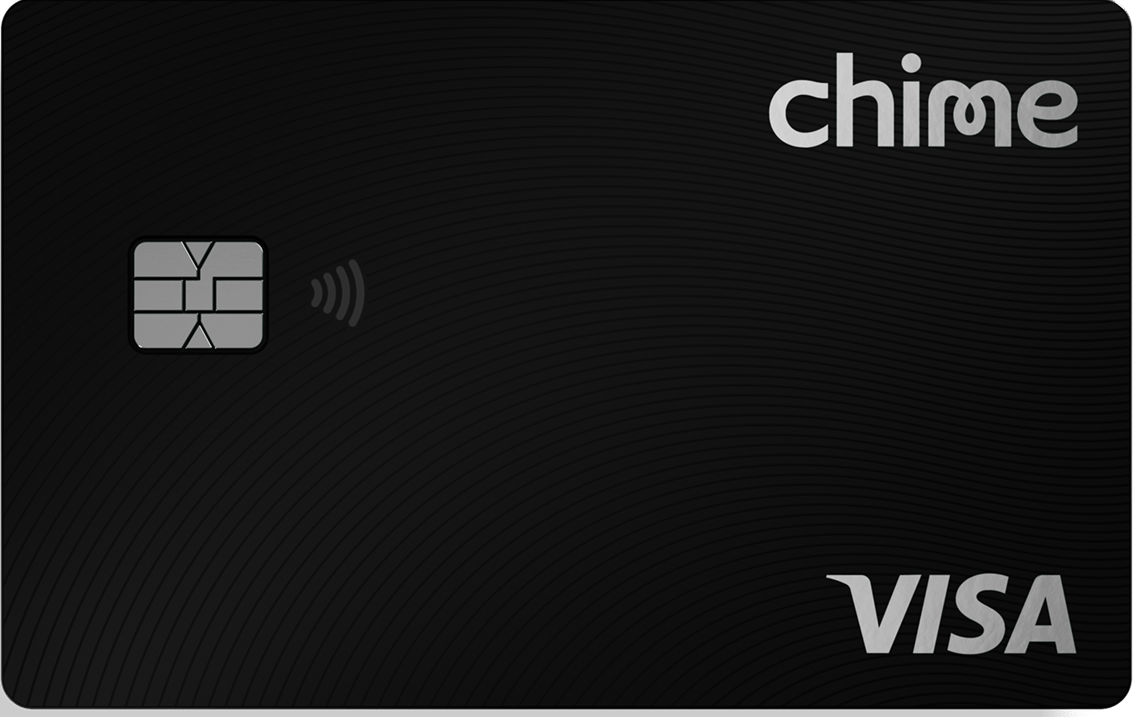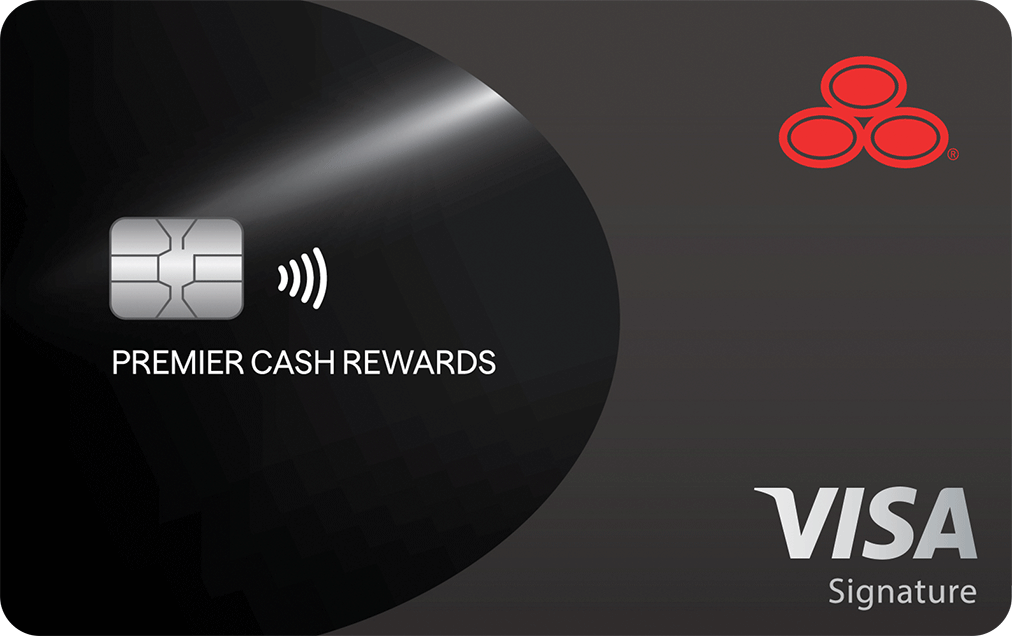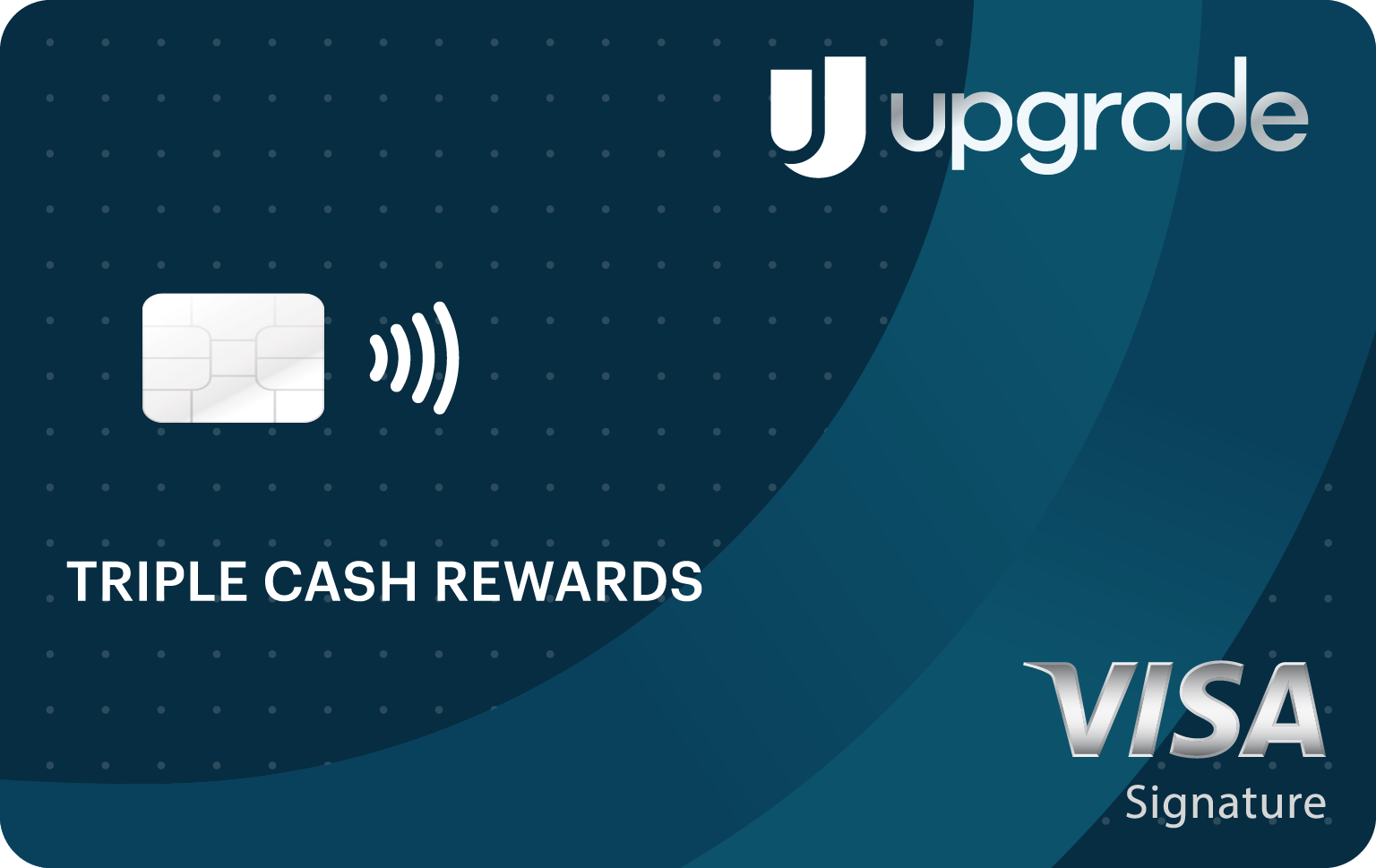8 Under-the-Radar Credit Cards With Hard-to-Find Perks
These lesser-known or less-heralded cards feature rare benefits like higher-than-usual rewards rates, uncommon bonus categories or super-valuable side offers.

Many or all of the products on this page are from partners who compensate us when you click to or take an action on their website, but this does not influence our evaluations or ratings. Our opinions are our own.
Many popular credit cards from well-known issuers offer valuable benefits and rewards. But there are some lesser-known cards — whether they're from smaller banks or credit unions, or simply just less-heralded products from bigger players — that come with rare but impressive perks that few other cards offer.
The following cards feature some hard-to-find benefits, like higher-than-usual rewards rates, uncommon rewards categories or seriously valuable side perks.
1. Robinhood Gold Card
The Robinhood Gold Card offers a market-leading and uncapped 3% cash back on all purchases, plus 5% back on travel booked through Robinhood’s travel portal. Redemption options are varied and include a deposit into a Robinhood brokerage account, statement credit, gift cards and travel booked in Robinhood’s portal.
Drawbacks
To qualify for the card, you must have a Robinhood Gold membership, which costs either $50 annually or $5 monthly. Also, while the card debuted in March 2024, it's still not widely available to the public. You must join a waitlist to "reserve" a spot for a chance to apply.
2. Chime Card™
Among so-called alternative credit cards for those with bad or no credit, the $0-annual-fee Chime Card™ is a stellar if inconspicuous option. It doesn't require a credit check, doesn’t require a minimum security deposit, nor does it charge an APR. The card also can snag you rewards in select categories, and it reports to all three major U.S. credit bureaus. That’s a rare combination of perks in a card designed to help you build credit.
Drawbacks
To be eligible for the card, you have to open a Chime Checking Account. And unlike some other cards aimed at beginners, there's no way to upgrade to a different product from the issuer once you're ready. And to that point, while this card is more or less debt-proof, other "normal" unsecured cards will not be — meaning you may be underprepared to take that next step to a better card.
See more from Chime®
Chime says the following:
- The Chime Card™ is issued by The Bancorp Bank, N.A. or Stride Bank, N.A., pursuant to a license from Visa U.S.A. Inc. and may be used everywhere Visa credit cards are accepted. Please see the back of your card for its issuing bank.
- Based on a representative study conducted by Experian® in Sept 2025, the top 10% of members who made their first purchase with Credit Builder, an earlier version of Chime Card™, between April and August 2024, observed a FICO® Score 8 increase of 71 points after approximately 8 months. Average increase of 28 points across all participants in the study. Credit score improvement not guaranteed. Paying on time may increase your score, while late payment may decrease your score. Other credit activity can impact your score. Credit score is one of many factors creditors may consider in evaluating credit applications.
- On-time payment history may have a positive impact on your credit score. Late payment may negatively impact your credit score. Chime will report your activities to Transunion®, Experian®, and Equifax®. Impact on your credit may vary, as Credit scores are independently determined by credit bureaus based on a number of factors including the financial decisions you make with other financial services organizations.
- Money added to the Chime Card™ will be held in a secured deposit account as collateral for your Chime Card™, and you can spend up to this amount. You can use money deposited in your Secured Deposit Account to pay off your charges at the end of every month.
- Out-of-network ATM withdrawal and over the counter advance fees may apply.
- SpotMe® on Credit is an optional, no interest / no fee overdraft line of credit tied to the Secured Deposit Account available to qualifying members with an active Chime Card Account. To qualify for the SpotMe on Chime Card service, you must receive $200 or more in qualifying direct deposits to your Chime® Checking Account each month and have activated your physical secured Chime Visa® Credit Card or Chime Visa® Debit Card. Qualifying members will be allowed to overdraw their Secured Deposit Account up to $20, but may later be eligible for a higher limit of up to $200 or more based on Chime account history, direct deposit frequency and amount, spending activity and other risk-based factors. The SpotMe on Chime Card Limit will be displayed within the Chime mobile app and is subject to change at any time, at Chime’s or its banking partners’ discretion. Although Chime does not charge any overdraft fees for SpotMe on Chime Card, there may be out-of-network or third-party fees associated with ATM transactions and fees associated with OTC cash withdrawals. SpotMe on Chime Card won’t cover non-card transactions. SpotMe on Chime Card Terms and Conditions.
- With a qualifying direct deposit, earn 1.5% cash back on eligible secured Chime Visa® Credit Card purchases.
3. Nibbles credit card
There aren't a lot of pet-centered credit cards on the market to begin with, so the Nibbles credit card is already somewhat rare by nature. But what makes it truly unique, and valuable, is its pet insurance benefit. The card offers up to $10,000 in yearly health coverage for accidental injury and illness for one pet, which can be used at any licensed vet across the U.S. The card’s insurance offers 80% coverage and a maximum deductible of $500. Holders also earn 3% cash back on eligible pet-related expenses — an unusual bonus category that includes food but also biggies like vet bills, boarding and sitting — plus 1% cash back on all other spending. The card doesn't charge an annual fee.
Drawbacks
As of this writing, there are limitations to the card’s pet insurance eligibility process. For example, older pets with established conditions will most likely not be approved. If your pet doesn’t qualify for coverage, you can still get the card, but you’d be losing out on its most valuable feature.
4. PenFed Pathfinder® Rewards Visa Signature® Card
The PenFed Pathfinder® Rewards Visa Signature® Card is unique in that it offers lucrative travel credits for, potentially, nothing. Normally, it charges a $95 annual fee — but that can be waived if you meet certain requirements (see below). If so, it means you'll pay no yearly cost for the card's top-notch travel benefits — including lucrative rewards on travel purchases; a $100 annual credit toward ancillary airline fees; statement credit for reimbursement of TSA PreCheck or Global Entry application fees; and a complimentary Priority Pass airport lounge annual membership. Getting that kind of value back on a $0-annual-fee travel credit card is virtually unheard of.
Drawbacks
To qualify for the card, you must belong to the PenFed Credit Union. And to qualify for a $0 annual fee, you must be a PenFed Honors Advantage member, which can be achieved by opening and maintaining a PenFed Access America checking account or being a current or previous member of the military. If you’re not affiliated with the military, you have to maintain a minimum of $500 daily in an eligible PenFed checking account or set up monthly direct deposits of $500 or more to keep Honors Advantage eligibility.
5. Aven Home Equity Visa Credit Card
Traditional secured credit cards use cash deposits as collateral, typically no more than $1,000. The amount you put down for a security deposit becomes your credit limit. While the Aven Home Equity card is a secured card, it offers the possibility of much higher credit lines, ideal for those looking for more spending power. That's because rather than being secured by cash, Aven Home Equity cards are backed by the equity in your home. Aven says that credit limits max out at $400,000.
The card also earns an unlimited 2% cash back on all purchases.
Drawbacks
Yes, the Aven card has plenty of appeal, but its benefits should be weighed against its primary drawback. Because home equity is the collateral backing your credit card, you could lose your home if you don’t pay your credit card balance.
6. Fasten Rewards Visa Card
With the Fasten Rewards credit card, it’s now possible to earn rewards on your monthly car note. Cardholders can earn 2x points on many car-related expenses including gas but also car loan payments, lease payments, repairs, DMV fees and car washes. The card earns a top rate of 3x points on purchases at Fasten Partners, a collection of car dealers, brands and retailers.
Drawbacks
To earn the 3x rate, you’ll need to shop at a Fasten Partner, and there’s no guarantee that your preferred dealership or mechanic belongs to that network.
You can only earn the 2x rate on car loan payments if you spend at least $500 on the Fasten card per month. Moreover, the amount of points you can earn from car loan or lease payments is capped at 2,000 per month, which is equal to $1,000. And be wary of redeeming rewards for a statement credit: Points are worth just 0.5 cent each when redeemed in that way.
7. State Farm® Premier Cash Rewards Visa Signature® Card
The State Farm® Premier Cash Rewards Visa Signature® Card earns bonus cash back on common household expenses like grocery stores and dining, but what makes it stand out is that it also gets you 3% cash back on insurance premium payments, on up to $4,000 spent annually. That's an unusual bonus category that could make sense for those who carry multiple policies.
Drawbacks
You have to be a State Farm customer to be eligible for the card. And again, there’s a cap on the amount of cash back you can earn on insurance premium payments.
🤓 Nerdy Tip
State Farm also offers the State Farm® Good Neighbor Visa® Card and the State Farm® Business Cash Rewards Visa Signature® Card, the latter of which also offers 3% cash back on insurance premium payments (up to $4,000 spent annually). 8. Upgrade Triple Cash Rewards Visa®
The Upgrade Triple Cash Rewards Visa® is a nontraditional card with several nontraditional features. For starters, it combines elements of both a credit card and a personal loan. Use it as you would a normal credit card, and if you don’t pay your bill in full, the balance becomes a fixed-rate loan you pay back monthly in equal installments. Additionally, the card earns bonus rewards in the hard-to-find categories of home, auto and health — which include large-expense items like landscaping services, car repairs and hospital visits. Other atypical perks abound: Applicants will be shown their card terms, including their credit limit and APR, before they agree to apply.
Drawbacks
Unlike other cash-back cards, rewards earned with the Upgrade Triple Cash Rewards Visa® are automatically applied toward your next card balance, which means you don't have the choice to decide what to do with your cash back or when to use it.
Other cards with unique features
Many of the following cards are from major issuers and hence aren't obscure products, but they do offer uncommon perks:
- Atmos™ Rewards Ascent Visa Signature® credit card: The winning feature on this $95-annual-fee card is its automatic yearly Companion Fare perk, which you can get after spending $6,000 the previous year. It can cover a flying buddy's Alaska Airlines ticket for as little as $122 ($99 plus taxes and fees, starting at $23).
- Bank of America® Customized Cash Rewards credit card: Holders of this card can earn bonus cash back in a category of their choice, among which home improvement is an option. (Terms apply.) The unique and expansive (exhaustive?) category includes everything from hardware stores to roof contractors to air conditioning repair services and much, much more.
- B&H Payboo Credit Card: Issued by Comenity Capital Bank, this card is unique because it offers rewards in the form of a sales tax rebate. (Holders also have the option of choosing a special financing offer with the card, instead of the rebate.) Note that you can only use the card at B&H, the New York City-based photography, video and audio equipment store.
- Citi Custom Cash® Card: You'll earn 5% back in one eligible spend category, on up to $500 each billing cycle, and an unlimited 1% back on all other purchases. And what makes this card a little different is that the eligible category is automated and adjusted for you based on your spending habits. You don't need to remember a quarterly bonus calendar or activate categories each month. The card does it for you.
- GBank Visa Signature credit card: Apt for gamers and betters, this card earns an unlimited 1% cash back on transactions in gaming and sports app loads — an uncommon credit card rewards category. The card also earns an unlimited 2% cash back on all other purchases.
- United Gateway℠ Card: A free checked bag benefit is common among high-end travel cards — but it’s rare to find that sought-after perk in a $0-annual-fee airline card. With United Gateway℠ Card, you can get two complimentary checked bags per year on United or United Express flights after spending $10,000 per year on the card.
- U.S. Bank Shopper Cash Rewards® Visa Signature® Card: This card features a unique, if complex, rewards structure. It earns 6% cash back on your first $1,500 in combined eligible purchases each quarter at two retailers you choose from a list of several. That list includes some mega retailers like Walmart, Target, Amazon, Apple, Disney and Home Depot. Plus, the card earns an unlimited 3% back in holders’ choice of one of three "everyday" categories, on up to $1,500 spent (1.5% after that). Those three possible categories are: wholesale clubs, gas and EV charging stations and bills and utilities. Few other cards offer this level of customization or such specific yet useful bonus categories.
- U.S. Bank Smartly™ Visa Signature® Card: Holders of this card earn an unlimited 2% cash back on all purchases — which already puts it on par with the best flat-rate cash-back cards. But what lands the card on this list is that its 2% base rate can jump to 2.5%, 3% and even 4% back — on all purchases — for cardholders who meet certain balance requirements. (You'll only earn this elevated rate on $10,000 in spending per billing cycle.) You’ll need at least $10,000 across eligible personal U.S. Bank accounts to boost your earnings rate to 2.5%, $50,000 to earn the 3% rate and $100,000 to get the outstanding 4% back. Also, you must have a U.S. Bank account to get the full value of the base 2% cash-back rate.
- Wells Fargo Active Cash® Card: This card's combination of features is market-leading. It offers a higher-than-standard 2% back on all eligible purchases, plus a welcome bonus, as well as a 0% intro APR period — all for a $0 annual fee.
The information related to the Citi Custom Cash® Card has been collected by NerdWallet and has not been reviewed or provided by the issuer or provider of this product or service.
Article sources
NerdWallet writers are subject matter authorities who use primary,
trustworthy sources to inform their work, including peer-reviewed
studies, government websites, academic research and interviews with
industry experts. All content is fact-checked for accuracy, timeliness
and relevance. You can learn more about NerdWallet's high
standards for journalism by reading our
editorial guidelines.
Limited Time Only: Earn $1,000 Toward Travel!
Capital One Venture Rewards Credit Card 
Travel

For a limited time, the
Capital One Venture Rewards Credit Card is offering new cardholders an especially rich bonus: Enjoy $250 to use on Capital One Travel in your first cardholder year, plus earn 75,000 bonus miles once you spend $4,000 on purchases within the first 3 months from account opening - that’s equal to $1,000 in travel!
Find the right credit card for you.
Whether you want to pay less interest or earn more rewards, the right card's out there. Just answer a few questions and we'll narrow the search for you.











